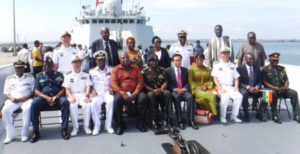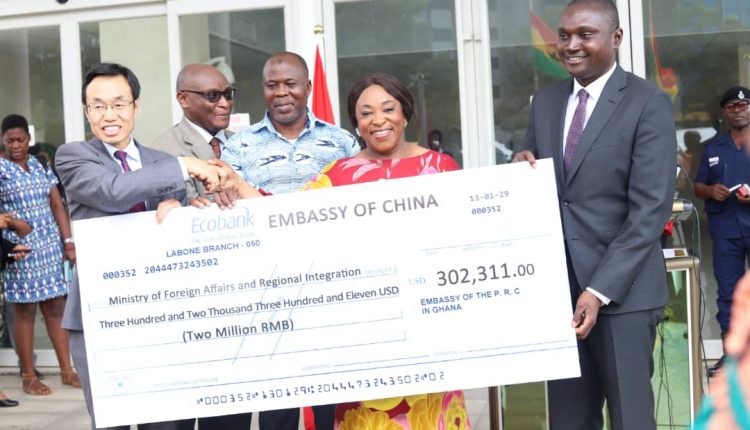‘China is putting native Ghanaians out of work’
Thanks to China, Ghanaians are living in “captivity in their own land,” according to Bishop Joseph Francis Kweku Essien.
The man-of-the-cloth has denounced China’s growing economic influence in his country, by taking over key industries and putting native Ghanaians out of work.
Bishop Joseph Francis Kweku Essien of Wiawso made his bold accusation through a videotaped sermon that went viral across the country.
He said, “there is a place called Wassa Akropong. The town at the moment has gotten a new name known as Wassa China. How did Wassa Akropong get that name?” the bishop asked rhetorically.
“The place is infested with Chinese. Chinese are now roasting plantain and Chinese selling sugar cane. These Chinese are using our people,” he said.
Bishop Essien accused the political leaders of his country of complicity, watching as the Chinese take over without lifting a hand to defend their own people.
“There are assemblymen and MPs. There are chiefs and they see it,” Essien said. “It is like nobody can talk about it. For what gain we are getting only God knows. So we are slaves in our own land.”
“Are we not in captivity? Are we not in exile?” he exclaimed:
Despite its abundance of natural resources, such as gold, diamonds, manganese, bauxite, timber, cocoa, and petroleum, Ghanaians are living in poverty, the bishop lamented, and hospitals do not even have enough beds to allow pregnant women the care they need, so they end up lying on the ground.
According to reports, the Chinese population in Ghana could number as many as 700,000 people out of a population of about 21 million. Chinese began moving to Ghana in the 1940s when both Ghana and Hong Kong formed part of the British Empire.
Numbers of Chinese immigrants into the country have increased in recent years, as China has acquired a larger stake in certain industries, such as mining, although complaints have also been voiced of Chinese moving into local retail markets and replacing locals.
In 2013, Ghana passed a law forbidding foreigners from engaging in small-scale trading, though many accuse their leaders of failing to enforce the law.
Last month, the Ashanti regional secretary of the Ghana Union of Traders Association (GUTA), Ali Mohammed Ahmed, said the Chinese are snatching up retail jobs and leaving young locals unemployed.
“They are collecting all retail businesses in Ghana. Some Chinese are roasting plantain; others are selling sachet water,” Ahmed said. “What of those our youth, brothers, children who leave school and there is no work? At the moment there is a freeze on employment, how do we survive?”

Local reports suggest the Chinese have been “invading” the retail sector, while aggrieved Ghanaians complain of negligent inaction on the part of their own government officials.
A few months ago, the government of the People’s Republic of China made a financial donation of US$302,311.00 to the Ghana Ministry of Foreign Affairs and Regional Integration to support the operations of the Ministry as well as its plans to refurbish its current head office building. The Chinese embassy in Ghana also donated two buses to the Ministry to support the transportation needs of the Ministry.
Meanwhile, Ghana and Cameroon have engaged with China in a joint military exercise. Three months ago, the 28th Escort Task Group of the Chinese Peoples’ Liberation Army Naval vessel arrived in Ghana with the aim of to deepen cooperation between the West African countries and China.
The Group while in Ghana made a financial donation to the Naval Base Primary School in Tema, and held a joint sea military exercise with their Ghanaian counterparts as well as joint sports activities and many more.
The Group was met by a large number of Chinese and Ghanaian Dignitaries, who waved the national flags of both countries on arrival in a Chinese Naval Ship at the Tema Habour.
Mr. Shi Ting Wang, the Chinese Ambassador to Ghana, who was also at the port to meet the Group, said presently, China-Ghana relations had reached an impressive level of cooperation and understanding.



